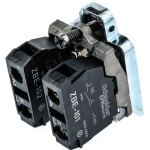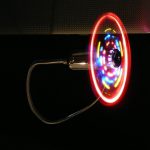
Introduction
The reliability of power supply systems is a critical aspect of maintaining consistent operations for commercial enterprises. Also, implementing robust power supply solutions can help businesses thrive in today’s competitive landscape. Power outages and fluctuations can lead to significant financial losses, damage to equipment, and even safety hazards. Hence, investing in reliable power supply infrastructure is a strategic imperative for any commercial entity. This article briefly outlines the key strategies and technologies that businesses can adopt to ensure reliable power supply solutions.
What are Commercial Power Supplies? Understanding the Importance of Reliability
Commercial power supplies are devices specifically designed to power various commercial equipment and systems. They work by converting electrical energy from a source into the correct voltage, current, and frequency to power the target devices. A commercial power supply is a staple in commercial settings where reliable and consistent power is necessary for operations.
Reliability in power supply solutions refers to the ability to deliver electricity without interruption or failure consistently. For businesses in particular, the reliability of power supplies directly impacts productivity, customer trust, and revenue generation. Reliable commercial power supplies in commercial settings also translate into regulatory compliance, equipment protection, and brand reputation.
The Need for Reliable Power Supplies in Commercial Settings
Power outages or even minor fluctuations in power can cause substantial financial losses, damage to sensitive equipment, and erosion of customer trust. Industries such as healthcare, manufacturing, data centers, and financial services are particularly vulnerable due to their dependence on high-availability systems. Additionally, unreliable power supplies can pose safety risks to staff and customers and result in data loss. That is why reliable commercial power supplies come into play, providing reliable and efficient distribution of power to various parts of the systems with robust safety. These powerhouses carry out vital functions in commercial applications, including stable voltage conversion, power conditioning, and power management.
Best Strategies for Enhancing Reliability in Commercial Power Supplies
Implementing the following practical strategies can improve the reliability of commercial power supplies in various settings. Some of the key strategies include:
Regular Maintenance
The first and foremost approach is to routinely check the power supply systems to help prevent failures due to wear and tear. This includes:
- Inspecting and replacing worn components
- Testing backup generators and UPS systems
- Ensuring all connections and wiring meet industry standards.
Using Quality Components
Using high-quality, durable components can reduce the likelihood of failures. This includes selecting power supplies with solid-state components, industrial-grade capacitors, and robust transformers that can withstand high temperatures and electrical stresses.
Surge Protection
Implementing surge protection can safeguard power supplies from voltage spikes and transients. Surge protectors can absorb or redirect excess voltage, thereby protecting sensitive electronics.
Deploying Voltage Stabilizers
Voltage stabilizers adjust incoming power to safe levels, protecting equipment from fluctuations and surges.
Investing in Uninterruptible Power Supplies (UPS)
A UPS provides instant power during outages, bridging the gap until a more permanent solution is available. It also helps manage voltage fluctuations and power surges.
Using Backup Generators
Backup generators are essential for long-term power outages. They can run on various fuels such as diesel, natural gas, or propane and can be configured to start automatically when power is lost.
Utilising Renewable Energy Sources
The successful integration of various renewable energy sources, including solar panels, wind turbines, and others, can reduce dependency on the grid and provide a more stable power supply.
Advanced Technologies for Power Reliability in Commercial Power Supplies
Using advanced technologies is revolutionising how power reliability is managed in commercial settings. These innovative technologies include:
- Smart Grid Technology – Smart grids use digital communication technology designed to detect and react to local changes in usage, improving efficiency and reliability in power distribution.
- Energy Storage Systems – Modern energy storage technologies, such as battery systems, can store excess power during low-demand periods. This power is released during peak usage, enhancing stability.
- Predictive Maintenance – Using data analytics and IoT sensors, predictive maintenance anticipates earlier equipment failures, allowing preemptive repairs and replacements.
Best Practices for Enhanced Reliability and Optimised Power Management in Commercial Sectors
Implementing best practices can help achieve efficient power management in commercial environments. These practices include:
- Power Quality Analysis – Regular monitoring and analysis of power quality can identify issues before they lead to failure, allowing proactive management.
- Training and Awareness – Properly educating staff on the importance of power management and proper equipment handling can prevent accidental damage and improve response times during power-related incidents.
- Compliance with Standards – Adhering to both national and international standards ensures the power systems are not only reliable but also safe.
Final Thoughts
In an increasingly competitive marketplace where downtime is costly, investing in reliable power infrastructure is not just a necessity but a strategic advantage. Ensuring the reliability of commercial power supplies requires a multifaceted approach, incorporating regular maintenance, advanced technologies, and best practices in power management. By investing in robust power solutions, businesses can protect their operations from disruptions and maintain sustainable, continuous, safe, and efficient operations.





















